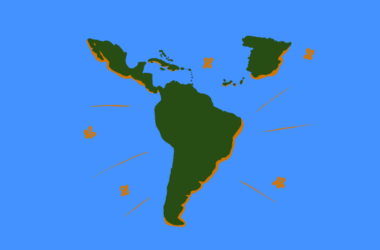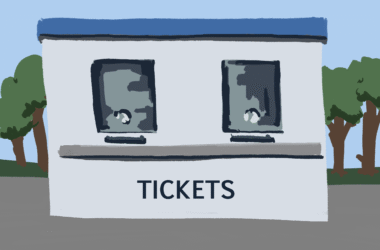I was whisked into Concrete Breaks’ Communal Art-Expo and Rave on Oct. 23 by heavy bass thrumming under my feet and a crush of people bottlenecking behind me. Once through the doors, bright projections of cityscapes flashed to my right while a diverse array of prints and poetry lined the[Read More…]
Author: Norah Adams
SLASA, CLASHSA, and LLC host ‘Building Bridges: Insights from Hispanic and Latin American Diplomats’ panel
On Oct. 24, McGill’s Spanish and Latin American Students’ Association (SLASA) and McGill’s Caribbean and Latin American Studies and Hispanic Studies Association (CLASHSA) collaborated with McGill’s Department of Languages, Literatures, and Cultures to host the ‘Building Bridges: Insights from Hispanic and Latin American Diplomats’ panel, in honour of Latin American[Read More…]
Francois Legault’s climate policy is an unforced error
Anxious about his plummeting approval rating, Quebec Premier François Legault is shrinking away from one of his strongest positions: Fighting climate change. Earlier this month, Legault’s government announced it will end funding for the Climate Action Barometer (CAB), an annual survey that allows Quebecers to voice their opinions about their[Read More…]
Nobody is running for mayor! The death of municipal democracy in Quebec
On Nov. 2, Quebec will hold municipal elections—though in 87 cities throughout the province, the results of these elections are already decided. In the 2025 Quebec municipal election cycle, over 4,500 municipal candidates ran unopposed. In a process known as acclamation, candidates who are running unopposed bypass the election cycle[Read More…]
A spooky sitcom season
Do you fundamentally refuse to be scared out of your skin for so-called ‘entertainment’ this Halloween season? Have you seen The Nightmare Before Christmas one too many times? Yes and yes again? That’s what I thought. But don’t worry; the Halloween season has more to offer than inspiration for your[Read More…]
Canada must criminalize coerced sterilization and confront its propagation of colonial violence
In 2005, Montreal practitioners performed a nonconsensual hysterectomy on Quebec Senator Amina Gerba, resulting in irreversible infertility. Gerba would not learn she had undergone this procedure—a clear violation of her medical rights and autonomy—until over a decade later, when, during an unrelated procedure, her gynecologist discovered she lacked a uterus.[Read More…]
Losing the world’s game: FIFA’s ongoing ticket crisis
In anticipation of the Fédération Internationale de Football Association’s (FIFA) 2026 World Cup, excitement for soccer’s biggest competition turned into anger from fans unable to afford tickets, highlighting public dissatisfaction with FIFA’s current ticketing model. Beginning on June 11, the 2026 World Cup will take place in 16 cities across[Read More…]
Culture Shock 2025: QPIRG hosts workshop exploring Milton-Parc’s hostile urbanism
On Oct. 23, the Quebec Public Interest Research Group (QPIRG) McGill hosted the “Walking as method: Exploring hostile design in Milton-Parc” workshop as part of its annual Culture Shock event series. This exploration was led by Cara Chellew, PhD candidate in McGill’s School of Urban Planning, as well as Jonathan[Read More…]
Opening the Black Box
Shining light on McGill’s Palestinian students stuck in Gaza, and the bureaucratic blockades that keep them there Part 1: Introducing the Black Box of bureaucratic violence and immigration restriction “Our academic aspirations are within sight, and we wish to contribute to the world through our studies. With the goodwill and[Read More…]
Could personalized interventions transform eating disorder care?
Eating disorders (EDs) are serious and prevalent conditions that can impact all aspects of one’s life. However, treatment remains difficult to access as a result of high costs, long waitlists, and geographic limitations. But what if just one encounter could significantly improve cost-effectiveness and long-term outcomes for individuals living with[Read More…]















